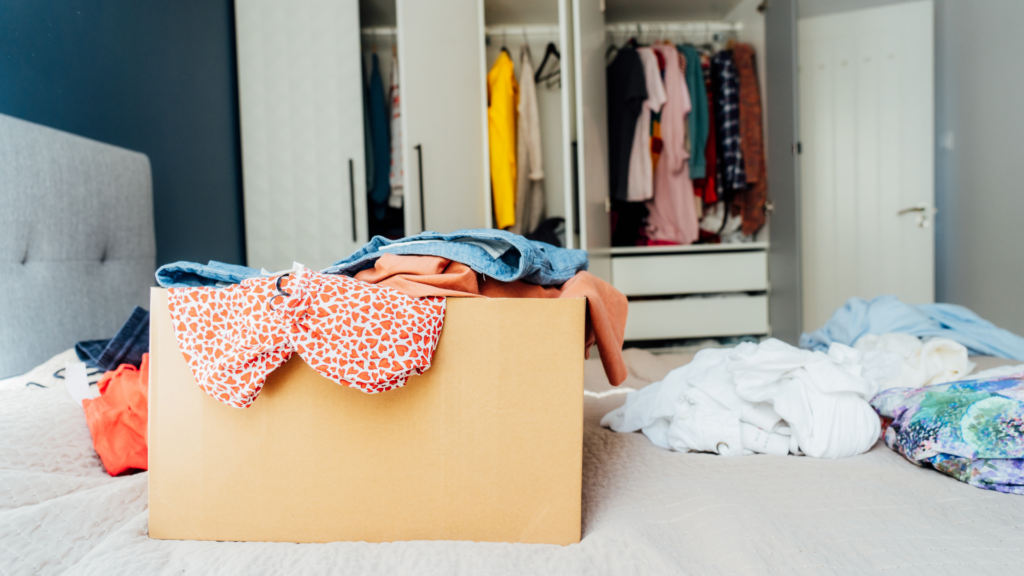Imagine walking into a room where everything’s in its place. You’re not tripping over shoes, scrambling through paperwork, or losing keys in a sea of clutter. Sounds like a dream? Well, it’s not. It’s achievable with the right decluttering and organizing strategies.
This article will guide you through simple, effective techniques to declutter and organize your life. It’s time to bid goodbye to mess and say hello to a more organized, stress-free lifestyle. So, let’s get started on this transformative journey.
Declutter and Organize
An organized environment exhibits a strong relationship with a happy, stress-free life. This section explores the fundamental philosophy behind decluttering and organizing, aligning with minimalistic strategies to enhance overall mental peace and productivity.
The Connection Between Clutter and Stress
People might find that to declutter and organize conjures stress. It’s not simply a personal nuisance but directly impacts mental well-being. Research indicates a significant bond between clutter and an individual’s stress level.
Rooms filled with unwanted, unnecessary items give rise to overwhelming feelings, impairing focus and hindering relaxation. Decluttering can serve as a therapeutic activity, transforming the chaos into pleasing simplicity.
Starting Your Decluttering Journey
To embark on a decluttering journey, it’s pivotal to have a measured and methodical approach. The process applies to spaces regardless of their size, from small apartments to grand villas. By assessing the total area and making a list of belongings, a comprehensive decluttering plan comes into play.
Assessing Your Space and Belongings
Evaluation forms the foundation of a successful decluttering journey. It requires one to catalog every item in their space. A meticulous inventory, noting down items in each room, serves as the starting point.
Maintaining a Decluttered and Organized Home
Maintaining a decluttered and organized home isn’t as simple as it may seem, particularly in bustling households. Despite this, regular upkeep offers the potential for sustained tranquility and reduced stress. Below are some sub-sections on successful habits and decluttering sessions.
Habits for Daily Maintenance
 Daily habits play a critical role in keeping a home tidy and clutter-free. It’s about developing an awareness of the spaces and objects in the home and ensuring they remain orderly.
Daily habits play a critical role in keeping a home tidy and clutter-free. It’s about developing an awareness of the spaces and objects in the home and ensuring they remain orderly.
-
Creating a system with defined places — House members can easily put items back to their designated spots if they have a home of their own. For example, designate a bowl for keys, a rack for shoes, and a pot for pens.
-
Promoting minimalism — Instead of lingering over on-the-go messes, engage in regular removal of unnecessary items. Have an approach of “If you don’t use it, lose it.”
-
Cleaning as you go — Instead of leaving tasks for later, tackle small messes or disorganization immediately after using something.
Scheduling Regular Decluttering Sessions
Despite implementing daily habits, decluttering sessions are a necessary part of maintaining an organized home. The frequency of such sessions varies by household, but they generally occur on a monthly, quarterly, or yearly basis.
- Monthly decluttering sessions — These sessions target minor clutter accrued over the month. For example, go through kitchen drawers and remove unnecessary utensils or expired foods.
- Quarterly decluttering sessions — Quarterly sessions tackle more significant areas that accumulate things over time. These spaces may include wardrobes, garages, or basements.
- Annual decluttering sessions — Annual sessions operate as a deep clean, targeting every space in the household. This type of decluttering is typically scheduled during spring cleaning season.
The Psychological Benefits of a Clutter-Free Environment
Improved Focus and Productivity
A declutter and organize environment has one distinct advantage, amplified focus and productivity. Heaps of scattered objects consume considerable mental energy, causing distraction and draining cognitive resources.
Enhanced Well-being and Happiness
In addition to productivity benefits, an orderly environment promotes overall well-being and happiness. Clutter often associates with negative emotions – stress, anxiety, and frustration. The act of decluttering can bring a sense of accomplishment, sparking joy and satisfaction.
Must Know
To declutter and organize aren’t just about maintaining a tidy home. They’re lifestyle choices that bring about profound effects on one’s mental well-being and productivity. As the article points out, the simple act of decluttering can be therapeutic, reducing stress and fostering a sense of accomplishment.
